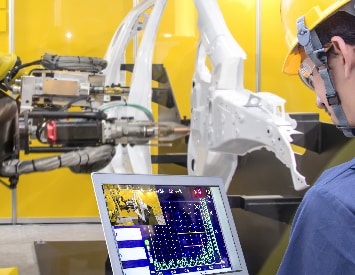Engineering is a demanding field, with its complex problem-solving and intricate concepts. To excel in this discipline, students need effective study methods that go beyond simply cramming before exams.
Different study methods are important because they cater to the diverse learning styles and needs of students. Not everyone absorbs information in the same way, and what works well for one person may not be effective for another.
Engineering is a vital field, making the correctness of your study methods essential for success. Let’s explore a few of these study techniques.
Different Study Methods
In this section, we’ll explore a variety of effective study techniques and strategies that can help you optimize your learning and retain information more efficiently.
Active Learning
Problem-Solving Practice
Engineering revolves around tackling complex challenges. You should regularly engage in problem-solving exercises and give practical examples to apply the theoretical concepts that you learn to the real-world. The labs that you do during your studies – remote and physical – would be useful revision tools.
Collaborative Learning
Collaborative learning is invaluable in engineering. Participate in group discussions that focus on problem-solving and project-based work. Interacting with peers fosters diverse perspectives and novel insights, fostering a dynamic and innovative learning environment.
Think about posting a question in an online forum which can be discussed by you and your fellow learners.
Comprehensive Notetaking
Detailed Notes
Taking meticulous and well-organized notes during engineering lectures plays a pivotal role in the learning process. It serves as a multifaceted tool because it forces you to make sense of the information which is presented, but it also flags the areas you may need to seek assistance with.
Another primary benefit of notetaking is information retention; active information retention and comprehension. Active notetaking will compel you to engage more deeply with the material being presented.

Visual Aids
The utilization of visual aids, such as flowcharts, diagrams, and graphs, stands as a fundamental practice in engineering education, and profoundly enhances the learning process. These graphical representations serve as powerful tools that bring complex engineering concepts and ideas to life.
Time Management
Prioritization
Recognizing the significance of prioritization and allocation of study time is a crucial strategy. Within the multifaceted realm of engineering coursework, this approach plays a pivotal role in streamlining the learning process and achieving academic excellence.
The first critical step is the identification of the most important and challenging topics. If you have some industry experience, some topics may be more familiar to you than others and require less attention. Some topics could be weighted more than others in terms of marks. To ably prioritize your study time and effort it is important to be discerning.
Consistency
Consistency in maintaining a regular study schedule, punctuated by well-planned breaks, is a cornerstone of effective learning. This practice offers numerous advantages that contribute to better retention and comprehension of complex engineering concepts.
Although you may need to be flexible at times, a regular study schedule establishes a structured routine, aligning with the human brain’s affinity for patterns and repetition. By dedicating specific time slots for studying, you create a predictable environment that signals to your mind the importance of the task at hand.
Utilize Online Resources

Remote Labs
As mentioned above, access to remote labs and resources which provide interactive experiments and practical learning experiences will aid learning.
Moreover, the Engineering Institute of Technology (EIT) website offers a wide range of engineering-related content, including research, whitepapers, e-libraries, webinars, and seminars, allowing you to participate in virtual experiments and hands-on activities from the comfort of your own computer.
Engineering Software
Engaging in hands-on practice with engineering software and tools relevant to your field is invaluable as it allows you to bridge the gap between theoretical knowledge and real-world application.
This hands-on experience not only sharpens specific skills critical to your profession but also enhances your problem-solving abilities, enabling you to tackle complex challenges, find innovate solutions, and efficiently troubleshoot issues that may arise in your engineering endeavors.
Seek Guidance
Professors and Tutors
Do not hesitate to reach out to your lecturers and other EIT staff, such as EIT’s Learning Support Officers (LSOs), when you encounter difficulties in your academic journey. Their expertise and support are invaluable resources for providing clarification and guidance, ensuring that you can overcome challenges and excel in your studies.
Mentorship
Seek mentorship from senior students or experienced industry professionals as they can provide you with invaluable practical insights and valuable career advice. Additionally, your lecturer can be an excellent resource for guidance and support, ensuring that you’re well-equipped to navigate your educational journey and future career.
Practice Exams
Past Papers
Solving past exams and practicing questions is a vital strategy in preparing for your assessments.
By doing so, you not only familiarize yourself with the format and structure of the exams but also gain a clearer insight into the types of questions and the level of difficulty you can expect. This process serves as a self-assessment tool, allowing you to gauge your readiness and identify areas where you may need to concentrate more effort.
Past papers can be found on many online websites.
Time Management
When practicing, it’s highly beneficial to set a time limit that simulates the conditions of an actual exam.
This approach not only replicates the pressure and constraints you’ll face during the test but also enhances your time management skills. By adhering to these time limits, you’ll learn to allocate your time efficiently, strike a balance between question difficulty, and make sure you complete the entire test within the stipulated time frame.
Hands-On Projects
Design and Build
Participating in hands-on projects relevant to your engineering field deepens your understanding and enhances problem-solving skills by translating theoretical knowledge into practical applications.
Where possible try to spend some time in a relevant industry. This will not only contribute to your learning but will also look good on your resume.
Additionally, it will give you real-world experience and valuable insights that can set you apart in your career journey.

Internships
Participating in internships or co-op programs provides hands-on experience in real engineering contexts, allowing you to apply classroom knowledge to practical, industry-related challenges. These opportunities foster professional skill development, enhance your understanding of the field, and bolster your competitiveness in the job market.
Regular Revision
Spaced Repetition
Integrate spaced repetition techniques into your study routine by periodically reviewing previously learned material at expanding intervals, significantly enhancing your ability to retain and recall information effectively.
Flashcards
Developing flashcards for critical terms, equations, and fundamental concepts can be a highly effective tool for streamlining your revision process. These compact, information-packed cards offer a readily accessible format for reviewing key knowledge, making it easier to reinforce your understanding and commit important information to memory.
Stay Healthy
Balanced Lifestyle
Prioritize a healthy work-life balance to sustain your overall well-being. This involves securing adequate sleep, maintaining a nutritious diet, and participating in regular physical activities to uphold the peak condition of your mind and body.
Such practices are fundamental for ensuring that you’re consistently performing at your best, whether in your academic pursuits or professional endeavors and for maintaining your long-term health and quality of life.
Stress Management
Cultivate effective stress management techniques, including mindfulness and relaxation exercises, to proficiently manage the pressures of engineering studies. These strategies equip you with the tools needed to handle the demanding nature of your academic journey, fostering mental and emotional resilience.
In the world of engineering, success is not solely about acquiring knowledge; it’s about applying that knowledge effectively.
By adopting these study methods and building up practical experiences, you can navigate your academic journey with confidence and prepare for a rewarding career in this challenging field.
If you are interested in pursuing a course with EIT, click here.
References
20 Tips for Engineering Students
7 Strategies for Effective Study Every Engineering Student Should Know


